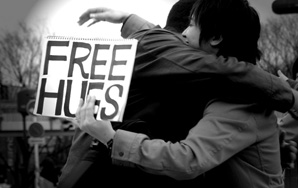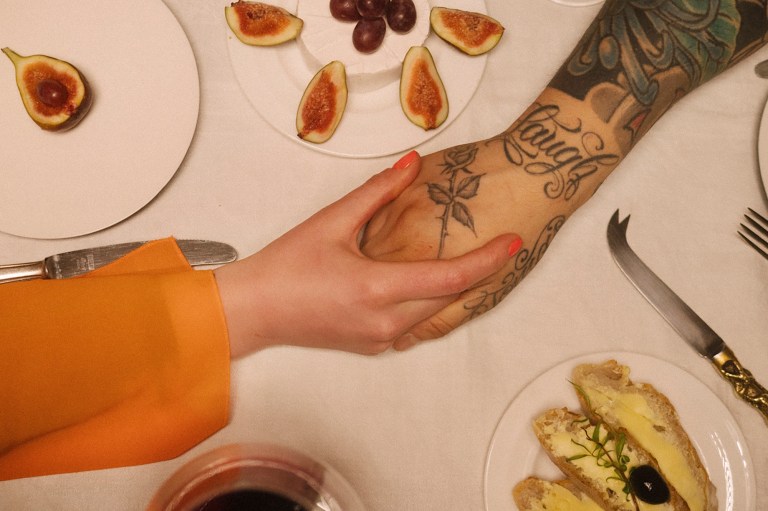
Your Real Love Is The One You Hurt
In some ways, it is a compliment. When you are more rude or flippant or hurtful with a very close friend, it is a way of saying to them, "I trust your love enough to know that it will weather the storm of my selfishness."
We all have a certain amount of venom in us. We save it up here and there like a very frugal snake, waiting to release it on the targets we deem acceptable. It accumulates throughout our days, with every slight from a rude stranger in the metro or insult from an acquaintance or stab in the back at the office. And there are plenty of people whose love for us is conditional enough that it would not withstand our venom, or it would return our cruelty tenfold in a way that they have already demonstrated they are capable of. We have friends around whom we tiptoe because they only accept a very limited range of our emotions and our needs.
And then we have friends — or family, or lovers — on whom we feel free to unleash the full force of our ugliness when they upset us just enough to trip that one certain wire. They could simply be in the wrong place at the wrong time, or have engaged in that one act that hits our nerves like a raw tooth. In any case, their crimes never fit the punishment of being the one we take for granted, the one we ignore or dismiss or critique when we feel as though the rest of the world would never listen to our righteous anger.
In some ways, it is a compliment. When you are more rude or flippant or hurtful with a very close friend, it is a way of saying to them, “I trust your love enough to know that it will weather the storm of my shitty selfishness.” Of course, it’s an incredibly hurtful way to convey such a pure kind of emotion. Their love acts as a security blanket that so completely surrounds you that you forget what is actually keeping you warm. The fact that you have the kind of love which always finds itself — which laughs harder, which understands every coded message, which has stretched across continents and oceans — is something that should be preserved with care. And yet we test its endurance at every turn.
There are real fights, of course. Real issues which need to be addressed, real hurts that can fester within any relationship and destroy expanses of connection if not addressed at the first sign of gangrene. But there is a certain tenderness and tact that we reserve for the people who care for us less, and a certain callousness we reserve for those who deserve it least.
Sometimes we can almost feel the venom as it drains from our bodies, this feeling that we’re getting out every bit of anger or injustice through the tips of our fingers or the edge of our lips as we frantically type a sarcastic text or make a comment that was as needless as it was designed to passive-aggressively cut. Perhaps we feel that we need to share this venom with the people who love us most because only they are equipped with the antidote, the feeling of being truly loved and understood in spite of your more unflattering angles. We feel cleansed in their pain, and then we hate ourselves for making them suffer at our hand.
Perhaps we should say “I’m sorry.” “I love you.” “You are the only person who really knows me, and who still wants to be my friend even when I am terrible.” “Your love is something that allows the rest of the world and all of its small aggressions to not feel so cold.” Perhaps we should say these things, the next time we are going to ignore their call because, we imagine, they will always be there to answer us later. ![]()











